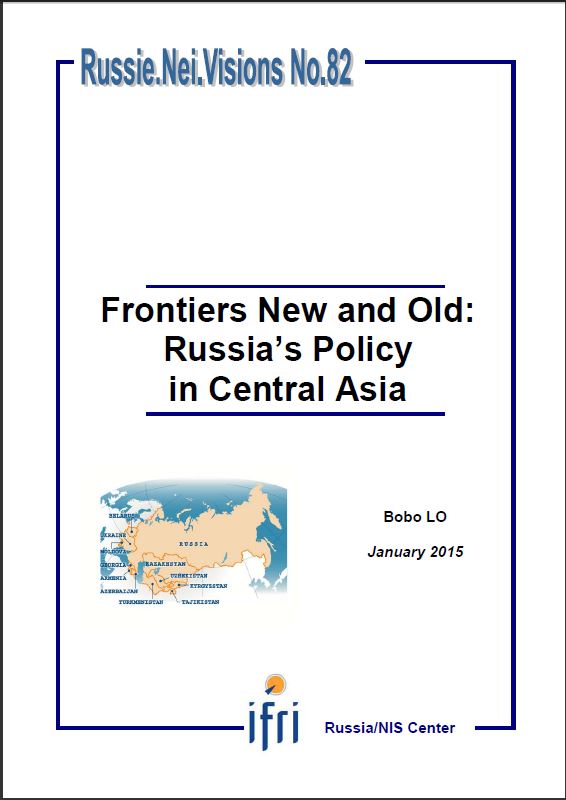Frontiers New and Old: Russia’s Policy in Central Asia

For much of the post-Soviet period, Central Asia has been a backwater of Russian foreign policy. But things are changing. Circumstances in and beyond the region are driving a more committed approach in Moscow.
Central Asia is critical to Putin’s aim of establishing Russia as the leading player in the Eurasian Heartland, and as an ‘independent’ center of global power alongside the United States and China. While there is no serious intention to revive the USSR, the Kremlin is keen to ensure a primary right of influence over the affairs of the ex-Soviet republics.
However, there are numerous obstacles in the way of such ambitions. Central Asian states such as Kazakhstan and Uzbekistan are no longer passive objects of Great Power diplomacy, but increasingly assertive actors. The United States will remain a key player in the region, even after the withdrawal of NATO combat troops from Afghanistan. And China is translating its powerful economic influence into a broader strategic presence. Despite the fanfare surrounding the Eurasian Union, Moscow’s position is weakening. Its capacity to dictate to others is significantly reduced, competition is greater, and the threats to Russian security are proliferating. Moscow faces a hard struggle if it is to avoid a sharp decline of its influence in Central Asia.
Download the full analysis
This page contains only a summary of our work. If you would like to have access to all the information from our research on the subject, you can download the full version in PDF format.
Frontiers New and Old: Russia’s Policy in Central Asia
Related centers and programs
Discover our other research centers and programsFind out more
Discover all our analysesThe Caspian Sea as an Emerging Energy Hub : Potentials and Limitations
This report analyzes the prospects of the Caspian Sea region — and its key actors except for Russia and Iran — becoming an important energy hub serving the needs of the European Union (EU).
The European Union's Strategic Test in Georgia
The political crisis brewing in Georgia is of an existential nature for the country. What is at stake is Georgia's future as a democratic and sovereign European nation (EU).
Commanders of Putin's Long War: Purged, Reshuffled and Disgruntled
The trend of reshuffling the Russian top military command in the course of a fast-evolving and far from successful war has progressed unevenly both across the Armed Forces’ structures and in time. The rationale for and timing of the abrupt cadre decisions made by Commander-in-Chief Putin often defy logical explanation, and the rare official clarifications are no more informative than the usual information blackout.
Russian Military Manpower After Two and a Half Years of War in Ukraine
In addition to a military victory in Ukraine, the Russian leadership is planning to build up sizable troop formations for a possible conflict with NATO in the Baltic region and the Kola Peninsula. In particular, current plans aim for the military manpower to grow by about 350,000, reaching a total of 1.5 million soldiers and commanders. In the context of the current conflict in Ukraine, this cannot be accomplished without a new wave of mass mobilization.











